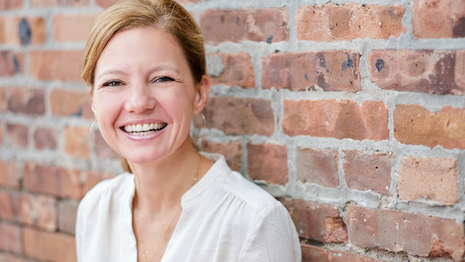- About
- Subscribe Now
- New York,
November 21, 2017

 Ashley Welch is cofounder of Somersault Innovation
Ashley Welch is cofounder of Somersault Innovation
By Ashley Welch and Justin Jones
It is that time of year again when sales and sales enablement leaders are planning their annual sales kick-off meetings. It is no small task.
In addition to the basic logistics of selecting a destination, blocking rooms and finding meeting space, there is an unspoken pressure to top last year’s meeting. How can we make it bigger and better? What guest speakers will inspire? What awards will mean the most to our top performers?
We get it. We have attended many of these ourselves over our careers, and we help our clients implement kick-offs for their teams by asking: “What if you planned your meeting from the customer’s point of view?”
Here are five customer-centric ideas you can try to make next year's meeting the best yet:
1. Strategic account planning. When we think of strategic accounts, we tend to think of our top accounts, the customers who buy the most from us.
At a kick-off meeting, time is often allotted to reviewing what additional products and services can be sold to increase revenue and further solidify the partnership. This is important work, but can quickly become insular—me, me, we. Our products, our services, our bottom line.
The reframe? Rethink about who you consider to be your strategic accounts in terms of extremes and mainstreams.
Your mainstream customers could be those larger accounts who buy and enjoy a significant amount of your products and services.
But you should also consider including some of your extreme customers: which customers are doing the most interesting things with your products and services? Invite them to join in a customer panel and ask them to talk about their strategic accounts.
2. Invite customers to recognize your top performers. Sales people work hard—and your best sales people can become easily isolated in the field. For these and many other reasons, it is so important to recognize your top performers in front of their peers.
Consider inviting your top performers’ customers to speak about them—even give them an award. It is probably the best praise your team could receive.
3. Spur innovation with analogous situations. We often hear from our clients that they desire to inspire.
Customers want to work with motivated sales professionals who can help them think outside the box. This is where analogs come in.
To come up with a great analog, reflect for a moment on a specific issue your business is trying to overcome. Then, consider completely different contexts where people have figured out a way to solve that very same problem. Here is an example:
One team we worked with did not think they connected enough with their customers. They felt the much of the work that enabled their customers’ success happened behind the scenes, which resulted in a loss of team motivation.
The analog: This team’s meeting was being held in New Orleans, so we took them to visit one of Emeril Lagasse’s famous restaurants. Much like this team, chefs and sous chefs work behind the scene, and yet it is their work that customers are ultimately enjoying. The team spent time with the executive chef, several sous chefs and the general manager interviewing them about their experiences.
As a result, they started to think differently about how they could engage more with their customers and stay motivated.
4. Product and marketing updates. We like to close the gap between your company and your customers, as well as between your product developers, your marketers and your salespeople.
Instead of inviting your marketing and product peers to download their latest and greatest, ask them to bring their news along with a sharpened pencil, and use kick-off time to connect product, marketing, and your salespeople with customers.
This works especially well with tip No. 1 – your extreme and mainstream customers. Think of this as piloting conversations with customers about new offerings and getting real-time feedback from the people who matter the most — the ones who will buy it.
5. Skill-building. Our final tip relates to building the skill set of your salesforce. Sales people are always looking for ways to hone their skills, improve their game and enjoy greater success.
Given our theme of customer-centricity, we will share a favorite exercise of ours:
We like to send sales people where they feel most comfortable — out in the field. Research retail centers in the location of your kick-off. Look for retail centers try to locate pairs within a common vertical that are low and high end.
For example, Toys “R” Us and Build-a-Bear for children’s toys, a Chevrolet and a Tesla dealership for cars, and so on. This exercise is best done in pairs, and each pair’s assignment is to visit their two stores and pay careful attention to what increases or decreases customer engagement.
We guarantee your teams will come back inspired by the amazing – and amazingly awful – things they experienced and will have fresh insights they can apply to their own customer relationships.
THINKING ABOUT your kick-off from your customer’s perspective can simplify and inspire your kick-off planning and lead to highly productive outcomes and a successful new year.
We encourage you to shake up your next kick-off and try these ideas to keep your customers right where they belong: at the center of everything.
 Justin Jones is cofounder of Somersault Innovation
Justin Jones is cofounder of Somersault Innovation
Ashley Welch and Justin Jones cofounded Somersault Innovation, a design thinking consulting firm and coauthors of “Naked Sales: How Design Thinking Reveals Customer Motives and Drives Revenue.” Ms. Welch is based in Boston and Mr. Jones in Lakewood, CO. Reach them at ashley@somersaultinnovation.com and justin@somersaultinnovation.com.
Share your thoughts. Click here